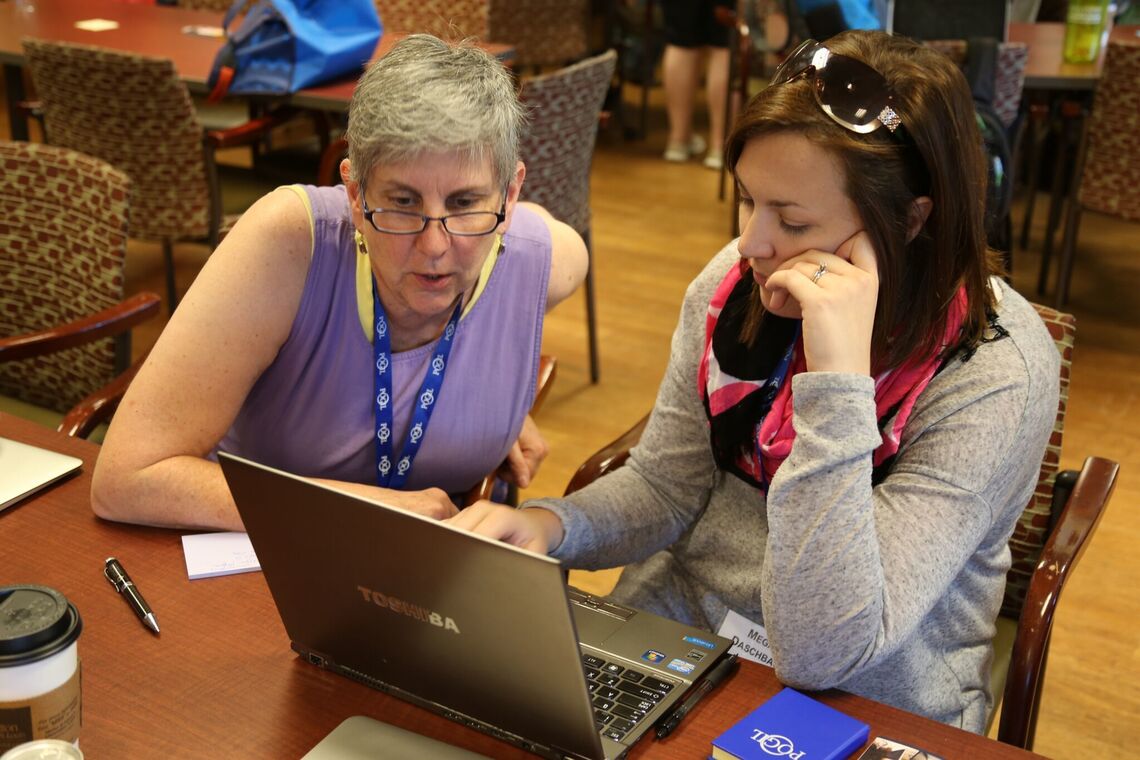Wednesday September 9th, 2016

Fall is in full swing at The POGIL Project, and with it comes exciting news to share. First, I want to thank our extraordinary community for its generosity during POGIL Pledge Week! Your gift makes a difference for teachers and students all year long.
As part of our community, you are changing teachers' lives, you are preparing students to succeed as critical thinkers and collaborators, and you are changing education for future generations. Thank you for your continued dedication to this work and for all you do to support The POGIL Project.
Also, please join me in congratulating our colleague Amanda Zullo (Saranac Lake HS, NY), who received the prestigious Presidential Award for Excellence in Mathematics and Science Teaching. The award is presented to outstanding K-12 science and mathematics teachers from across the country. When announcing the award, President Obama said: "The recipients of this award are integral to ensuring our students are equipped with critical thinking and problem-solving skills that are vital to our Nation's success.”
Be sure to read the update on the progress of The Project’s strategic plan. In 2017, we’ll be nearing the end of our initial five-year plan, and will assess what we’ve achieved and explore where we want to go. During this process, we’ll be reaching out to our community for insights as we develop and refine our next set of goals.
Thank you for all you do to make this possible.
Rick Moog
Ask the Mole
Q: What are process skills and why are they important?
A: Process skills are an important part of any POGIL classroom. The PO in POGIL stands for “process oriented” which refers to the seven key process skills that are developed as students work through POGIL activities. The process skills identified by the POGIL project include: teamwork, communication (oral and written), information processing, critical thinking, problem solving, management, metacognition and assessment. These skills are also called soft skills, workplace skills or professional skills. Most employers cite the need for employees who are capable of communicating with others, solving problems that do not have an obvious solution and are able to think critically. In a typical lecture-based classroom, students gain little experience developing these important workplace skills.
The POGIL classroom however, focuses on the explicit development of these mportant process skills. POGIL activities are based on the learning cycle completing activities in groups of 3-4 students assigning clear roles for each student, and helping students develop communication, teamwork and management skills. The exploratory (or directed) questions in the activities help students improve their information processing as they work to interpret the model. They also support problem solving and critical thinking skills. The questions that comprise the concept invention/development part of the activity ask students to engage in problem solving and critical thinking, although the focus varies from activity to activity. These questions also support the development of students’ communication skills, particularly questions that require students to explain concepts in complete sentences. The classroom facilitator also plays a large role in helping elicit the process skills during group interactions. Both in the classroom and on written assignments the instructor should be deliberate about having students work on process rich materials.
—Courtesy of Suzanne Ruder, Virginia Commonwealth University
Feel free to suggest your own topics. The more ideas we have, the happier the POGIL community will be! If you have any questions regarding inquiry learning, POGIL materials, or any POGIL-related knowledge, email us at [email protected].
